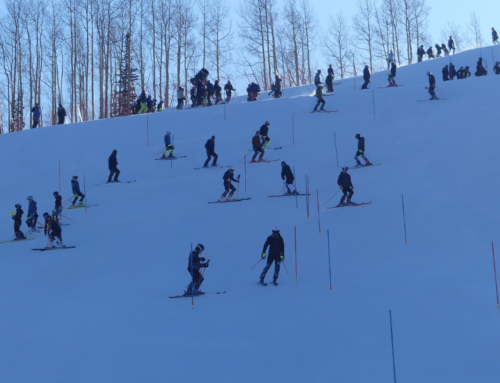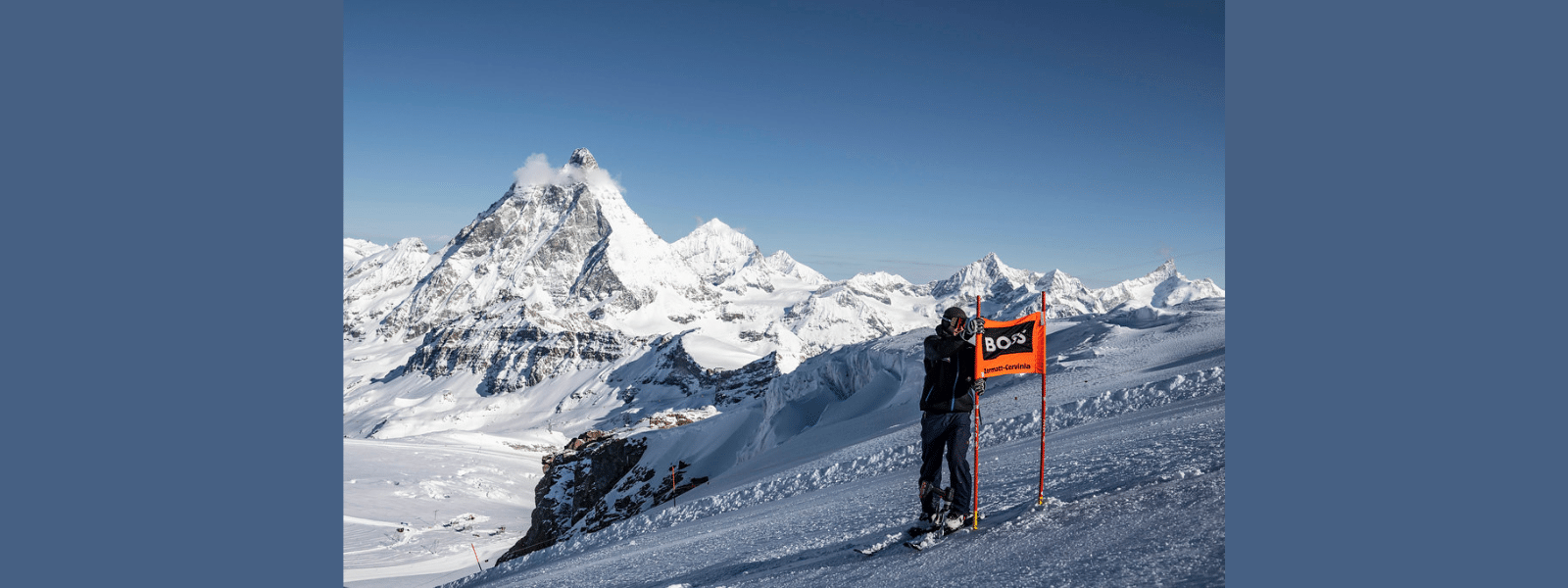U.S. team gets exclusive rights to Keystone run
With elite teams from all over the world scrambling to get in their last rounds of preseason training in November, the U.S. Ski Team will have a hill all to itself.
Colorado’s Keystone Resort will provide the team exclusive training rights at the ski area’s North Peak beginning Nov. 5.
“It’s always been a challenge to secure high-quality training space at the beginning of November,” said U.S. Alpine Director Jesse Hunt. “We’ve been able to do that with Keystone in the fashion of actually having exclusive training.” WITH ELITE TEAMS from all over the world scrambling to get in their last rounds of preseason training in November, the U.S. Ski Team will have a hill all to itself.
WITH ELITE TEAMS from all over the world scrambling to get in their last rounds of preseason training in November, the U.S. Ski Team will have a hill all to itself.
Colorado’s Keystone Resort will provide the team exclusive training rights at the ski area’s North Peak beginning Nov. 5.
“It’s always been a challenge to secure high-quality training space at the beginning of November,” said U.S. Alpine Director Jesse Hunt. “We’ve been able to do that with Keystone in the fashion of actually having exclusive training.”
Keystone is working with York Snow and has installed additional snowmaking equipment on Star Fire, an intermediate run with a vertical drop of 1,554 feet (470 meters), where the U.S. men’s and women’s World Cup teams as well as the Europa Cup team and the developmental team will have the course to themselves.
“We’re going to be able to organize our training around our training and our needs,” Hunt said. “We’re looking forward to having all of our teams together. Typically at that time of year, we’ve been spread out at all different sites.”
The elite teams will enter Keystone training after the World Cup giant slalom openers in Sölden, Austria, Oct. 28 and 29. While the speed teams will be a part of the training, drills at Keystone will largely revolve around GS and slalom, as both the men’s and women’s teams will compete in the first World Cup slalom of the season in Levi, Finland, on Nov. 11 and 12. The teams then return to North America, where the men go on to compete in downhill and super G in Lake Louise, Alberta, at the end of November then head to the only men’s World Cup stop in the United States at Colorado’s Beaver Creek. The women’s team makes its one and only U.S. World Cup stop in Aspen Nov. 25-26. Keystone will host men’s NorAm GS and slalom races for the second time Nov. 27-30.
“This is the type of partnership we will be seeking worldwide in the future to provide our U.S. athletes with better training,” said U.S. Ski and Snowboard Association President Bill Marolt. “Our long-term goal is to really control our own training space and to expand the opportunity to all of our sport programs.”
The ski team’s agreement with Keystone is good for one year, but both USSA and the resort are looking at extending the partnership.
“It’s a reflection of a longer-term vision [of] what is in our joint collective best interest,” said Keystone Director of Mountain Operations Chuck Tolton. “Dealing with one team interested in partnering with us coincides very closely with our support of winter sports — whether it’s the local group of Team Summit skiers, the NorAm we did last year or the U.S. Ski Team, it works well to give back to the sport.”
Tolton said Keystone has a large list of inquiries from other teams interested in using the mountain for training and that with the resort’s modern snowmaking technology, which operates completely on renewable wind energy, Keystone will likely be able to accommodate more teams for early season training.
“Teams develop relationships with resorts, but resorts can’t accommodate all of them,” Tolton said. “Every one is looking for a little more. As we enhance our snowmaking system, we will be able to accommodate the pent-up demand. Early season training isn’t going away. Maybe others will step up and say, ‘Look what’s going on at Keystone.’ For U.S. skiing, it’s a tremendous opportunity.”
Coaches and teams have long since dealt with crowded and limited conditions on training hills early season. Many teams from North America and Europe typically have to share one or two runs and are restricted to just a few hours of training in the morning. At Keystone, the U.S. teams will have the top-to-bottom run all to themselves and will have the freedom to train all day.
“It can get kind of tight on the hill training that time of year,” said U.S. women’s tech coach Chris Knight last week as he was preparing to join his team in Sölden. “It’s pretty great to have exclusive rights at Keystone.”





















